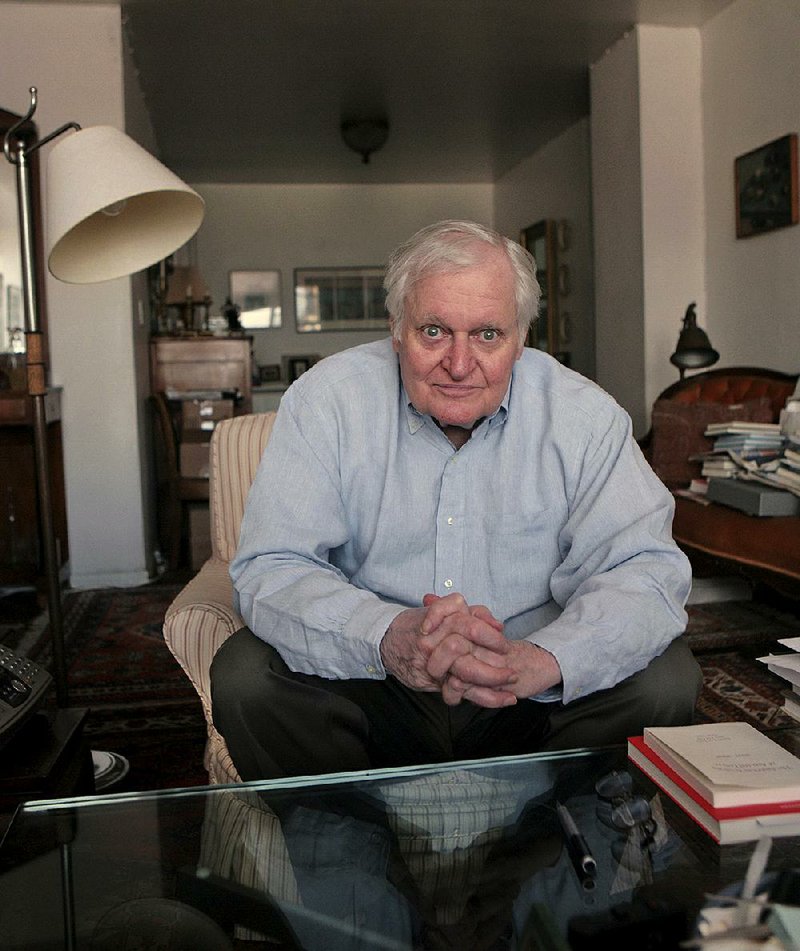NEW YORK -- John Ashbery, an enigmatic giant of modern poetry whose energy, daring and boundless command of language raised American verse to brilliant and baffling heights, died early Sunday at age 90.
Ashbery, winner of the Pulitzer Prize and often mentioned as a Nobel candidate, died at his home in Hudson, N.Y. His husband, David Kermani, said his death was from natural causes.
Few poets were so exalted in their lifetimes. Ashbery was the first living poet to have a volume published by the Library of America dedicated exclusively to his work. His 1975 collection, Self-Portrait in a Convex Mirror, was the rare winner of the book world's unofficial triple crown: the Pulitzer Prize, the National Book Award and the National Book Critics Circle prize. In 2011, he was given a National Humanities Medal and credited with changing "how we read poetry."
"No figure looms so large in American poetry over the past 50 years as John Ashbery," Langdon Hammer wrote in The New York Times in 2008. "Ashbery's phrases always feel newly minted; his poems emphasize verbal surprise and delight, not the ways that linguistic patterns restrict us."
But to love Ashbery it helped to make sense of Ashbery. Writing for Slate, the critic and poet Meghan O'Rourke advised readers "not to try to understand the poems but to try to take pleasure from their arrangement, the way you listen to music." Joan Didion once attended an Ashbery reading simply because she wanted to determine what the poet was writing about.
Interviewed by The Associated Press in 2008, Ashbery joked that if he could turn his name into a verb, "to Ashbery," it would mean "to confuse the hell out of people."
Ashbery was born in Rochester, N.Y., in 1927 and remembered himself as a lonely child and bookish child, haunted by the early death of his younger brother and by his attraction to other boys. Ashbery grew up on an apple farm in the nearby village of Sodus, where it snowed often enough to inspire his first poem, "The Battle," written at age 8 and a fantasy about a fight between bunnies and snowflakes.
His style ranged from rhyming couplets to haiku to blank verse, and his interests were as vast as his gifts for expressing them. He wrote of love, music, movies, the seasons, the city and the country, and even composed a hymn to President Warren Harding. As he aged, he became ever more sensitive to mortality and reputation. "How to Continue" was an elegy for the sexual revolution among gays in the 1960s and '70s, a party turned tragic by the deadly arrival of AIDS, "a gale (that) came and said/it is time to take all of you away."

